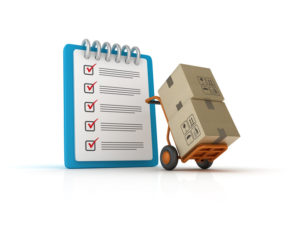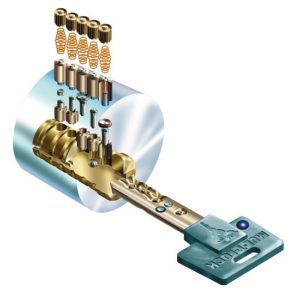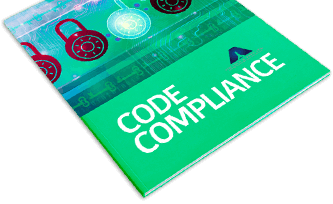
According to a study done by MovingLabor.com, 80% of all residential moves take place between the months of April and September.
With the hustle and bustle of things like…
- Buying your new house
- Selling your old home
- Hiring a moving company
- Updating address information (for things like banking, driver’s license, etc.)
…it can be easy to forget some common sense security tips you should follow.
One particular security change you should make after taking possession if your new house is lock rekeying from Aim Lock & Safe.
It’s quick. It’s convenient. And it adds an extra layer of security to your home.
What is lock rekeying?
Many homeowners in Milton, Toronto-Mississauga and Hamilton choose to replace their locks outright with new hardware installations.

Image from City Locksmith, Las Vegas
Lock rekeying means changing the internal workings of a lock so that it functions with a different key.
The exterior appearance of the door lock and handle remain the same (an added bonus if you like how the locks in your new house look).
When lock rekeying is complete, any old keys associated with that lock are rendered useless.
Why rekeying is effective when moving to a new house?
The most exciting and rewarding part of owning a home is taking possession of the keys.
But do you know if the previous homeowner loaned keys to people like:
- Family members
- Babysitters
- Neighbours
- Contractors (i.e. cleaning companies)
And do you know if those keys have been returned?
It sounds far-fetched, but if a bad apple still has access to working keys, they can easily enter your home or have them cut and duplicated.
It doesn’t matter if there are a million keys to your home out there. None of them will work if you get the locks rekeyed.
Rekeying gives you key control
As mentioned earlier in this blog, lock rekeying makes any lost or unaccounted for locks ineffective.
When you know who has workable keys to your home, that’s called “key control.” The moment you can’t account for a single key, “key control” is lost.
Here’s something else to consider:
Let’s say you’re moving into a new community which was constructed by a single builder. On average, 16 different key configurations can operate a single lock (Source: Angie’s List).
That’s not:
- 16 copies of the same key
That is:
- 16 unique key designs
With all those key variations out there, it’s almost impossible to achieve and retain “key control.” But with lock rekeying, you’ll instantly get 100% total “key control.”
See the conditions of your lock
Because a locksmith has to disassemble the lock and manipulate the pins inside, they’ll get a good look at its internal workings.
There could be serious damage to the interior the lock, such as:
- Foreign objects (i.e. paper, glue, metal) stuck inside
- Signs of lock picking (i.e. scratch marks)
- Rust
If the carnage isn’t too severe, standard lock rekying should rectify it.
On the other hand, if there’s too much wear-and-tear to be salvageable, your locksmith can help you come up with the right solution.
In any event, you don’t want to move into your new home unaware to the fact that its locks aren’t up to standard.
Lock rekeying can help with home insurance
Some insurance companies might provide a lower rate if you get the locks in your house rekeyed.
 s
s
(Fingers crossed), should you ever need to make a claim, your insurance company will look for signs of forcible entry.
No signs of forcible entry could mean that the perpetrator simply walked in through the front door.
And if it’s determined they had a key do it, you – the homeowner – may be responsible due to “homeowner neglect.”
In that case, your claim could be denied or seriously compromised.
Have us rekey your locks for you
Lock rekeying is much faster and affordable than lock and key replacement.
Most importantly, it’s just as effective.
If you’ll be moving soon (or in the next few months), make sure you have a plan to rekey your locks.
Contact us with your questions or comments about lock kekeying. An experienced locksmith will get back to you ASAP with the answers you need.







